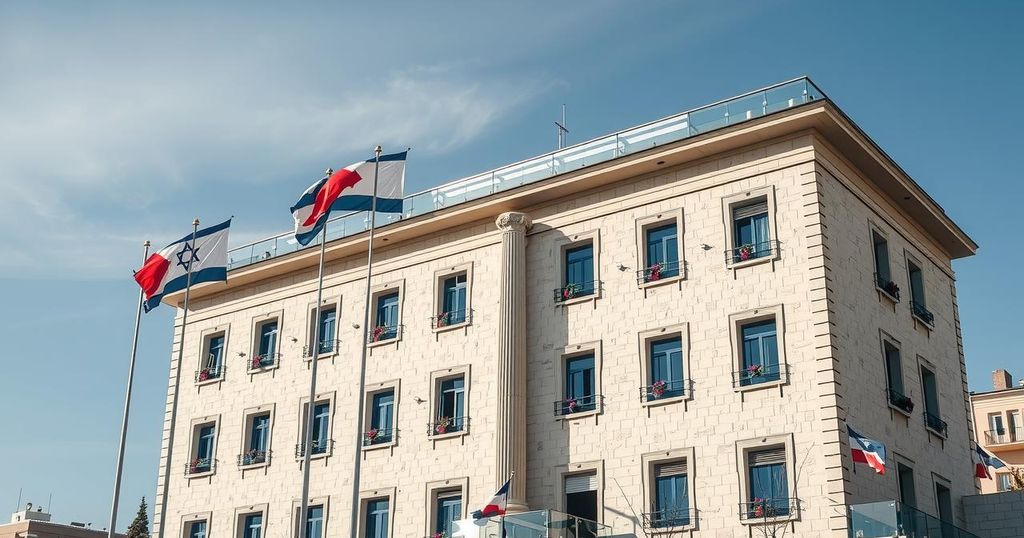Paraguay has reopened its embassy in Jerusalem, reaffirming recognition of the city as Israel’s capital. This move follows a previous reversal under a different administration. Paraguay is the first nation to reopen its embassy since the Hamas-led attack on October 7. U.S. officials have commented on the changing dynamics in the region that may impact ongoing negotiations regarding the conflict in Gaza.
On Thursday, Paraguay reestablished its embassy in Jerusalem, thus reaffirming its recognition of the city as the capital of Israel. This decision marks a significant shift as Paraguay had previously relocated its embassy to Jerusalem in 2018, only to reverse it shortly thereafter when a new government assumed office. President Santiago Peña’s decision makes Paraguay the first nation to reopen its embassy following last year’s Hamas-led terror attack that sparked ongoing conflict in the region.
With this move, Paraguay follows in the footsteps of the United States, Honduras, Guatemala, Kosovo, and Papua New Guinea, all of which have embassies in Jerusalem. In Jerusalem, U.S. national security adviser Jake Sullivan commented on the geopolitical shifts in the region, attributing them partly to Israel’s recent ceasefire in Lebanon, which he believes will facilitate negotiations to conclude the ongoing conflict in Gaza. Sullivan will visit Qatar and Egypt as part of the Biden administration’s efforts to solidify deals before the inauguration of President-elect Donald Trump.
The recognition of Jerusalem as Israel’s capital has been a contentious matter in international diplomacy. Paraguay’s decision to reopen its embassy signifies an important political stance, aligning it with countries that have also approved this perspective. The original decision to relocate the embassy was made in 2018 by then-President Horacio Cartes, while the subsequent reversal highlighted the shifting nature of foreign policy based on domestic administrative changes. The current geopolitical landscape, particularly following violent escalations involving Hamas, further complicates these diplomatic decisions as countries navigate their relations with both Israel and Palestinians.
In conclusion, Paraguay’s recent decision to reopen its embassy in Jerusalem underscores a significant development in the diplomatic recognition of Israel’s capital. This action not only positions Paraguay among a select group of nations but also reflects ongoing shifts in the Middle Eastern geopolitical landscape, particularly in light of recent conflicts and ceasefires. The involvement of U.S. officials and their assessments of regional stability highlights the broader implications of such decisions on international relations and peace efforts.
Original Source: www.reviewjournal.com






